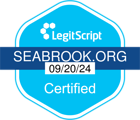New Liquid THC Threat Looming
New Liquid THC Threat Looming
There’s a new form of marijuana that has been hitting the streets, and very little is known about how dangerous it is. It’s called “liquid THC,” and it’s a oil- or liquid-based form of pot that has begun to gain some popularity among drug users. It’s even been showing up in the police blotter: in November, in Washington State, law enforcement apprehended a woman at a middle school who was hawking liquid THC to youths. She was trying to push the drug as a more potent high than with smoked weed.
Though marijuana itself can be very dangerous on its own, liquid THC is even more dangerous because so little is known about it. And because drug users aren’t as used to it, there’s greater potential for a drug dealer to “cut” liquid THC or contaminate it with a harmful substance—all in the name of greater profits. And though marijuana (and THC) aren’t physically addictive, it’s still possible to become physiologically dependent on them. The best way to avoid this dependence is to not use marijuana or THC—and the best way to kick the habit is with a good program of treatment.
If you have a problem with drug addiction or dependence, you should seek help now. Thankfully, there is good help available. Detoxification and behavioral therapy have proven to be effective in treating drug dependence. Addicts are often unable to complete treatment on their own or with family members, so it’s very important to seek the right treatment center. At Seabrook, we customize our treatment plans to individual patient’s needs, so you know the help you’re getting is right for you or a loved one. Whether you need an in-patient facility, or outpatient care, Seabrook is there for you with rehabilitation centers in New Jersey (NJ), Pennsylvania (PA), and an outpatient center in New York (NY). Contact Seabrook today for any questions about drugs, addiction, and treatment.




